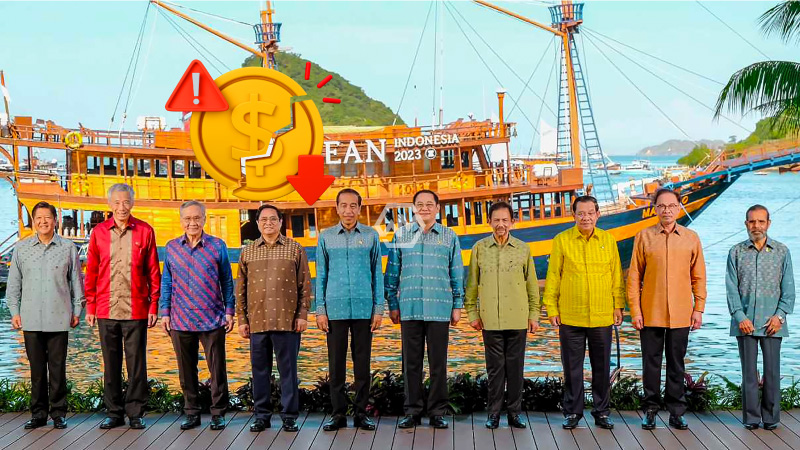On May 10–11, the 42nd ASEAN Summit, which was presided over by the Republic of Indonesia, brought together the leaders of the Association of Southeast Asian Nations (ASEAN).
The Philippines, Malaysia, Myanmar, Singapore, Vietnam, and Thailand are ASEAN members, together with Brunei, Cambodia, Indonesia, Laos, and Malaysia. H.E. Joko Widodo, president of Indonesia, presided over the conference.
Dollar Dominance
At the end of the summit, the chairman released an official declaration that stated: “The ASEAN Leaders Declaration on Advancing Regional Payment Connectivity and Promoting Local Currency Transactions is a step toward strengthening bilateral and multilateral payment connectivity arrangements. The declaration enables fast, seamless, and affordable cross-border payments across the region to strengthen economic integration.”
The ASEAN central bank governors and finance ministers met in Bali, Indonesia, at the end of March and decided to take action to promote the use of local currencies in the area and lessen reliance on the US dollar and other major international currencies for cross-border commerce and investment.
- On May 10–11, the 42nd ASEAN Summit brought together the leaders of ASEAN.
- The declaration enables fast, seamless, and affordable cross-border payments across the region to strengthen economic integration.
- The BRICS countries are attempting to establish a single currency to lessen their dependency on the US dollar.
According to Perry Warjiyo, the governor of the Bank of Indonesia, Indonesia is following the BRICS in moving away from the dollar.
The BRICS countries (Brazil, Russia, India, China, and South Africa) are attempting to establish a single currency to lessen their dependency on the US dollar; their leaders intend to discuss this issue at their upcoming leaders’ conference.
According to a former White House economist, a common BRICS currency would weaken the dominance of the dollar, and “they would remove an impediment that thwarts their efforts to escape dollar hegemony” if they used only their common currency for international trade.
A successful BRICS currency might cause the U.S. dollar to lose its place as the world‘s reserve currency, according to investment analyst Jon Wolfenbarger. Living standards in the US would suffer as a result, and the US government would have less authority.



